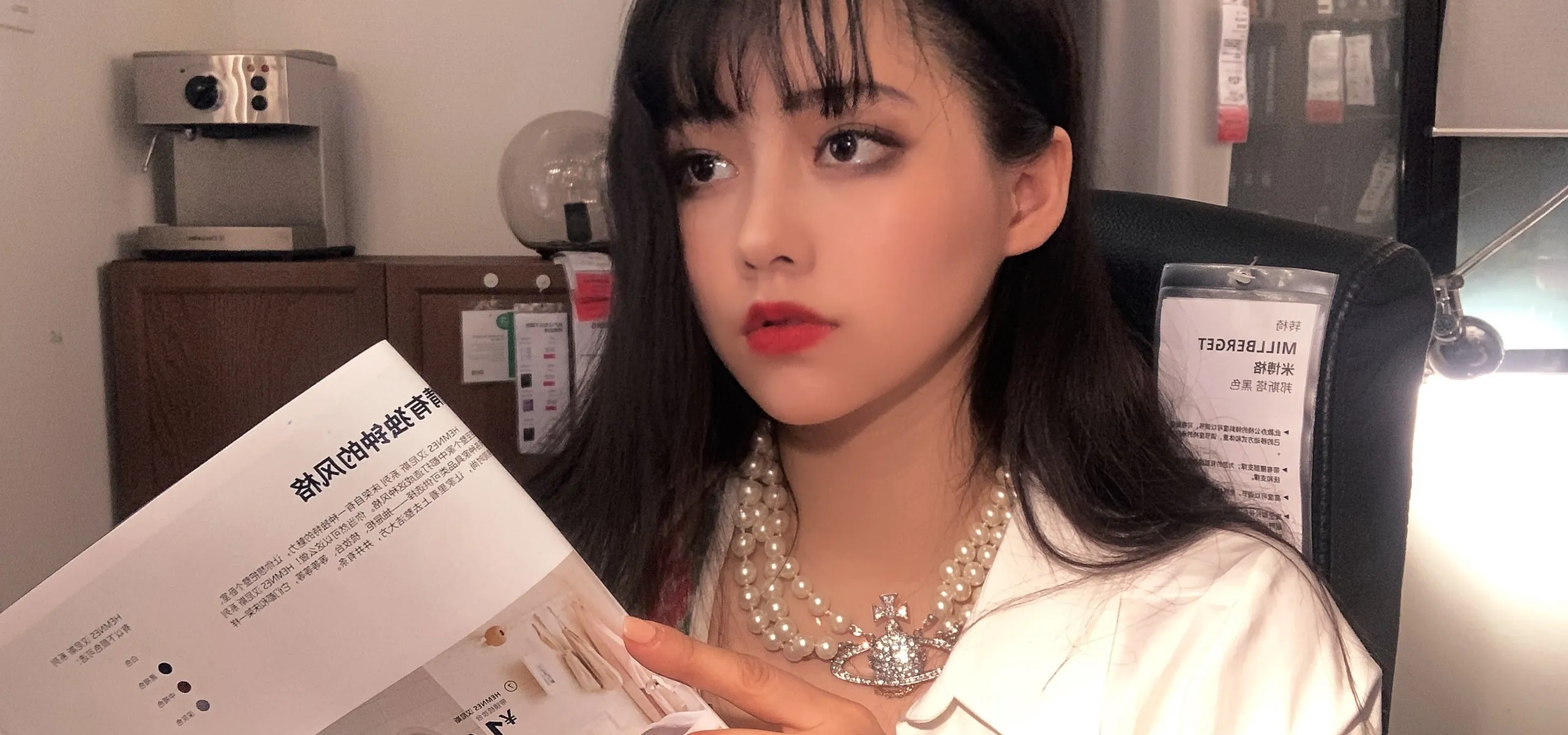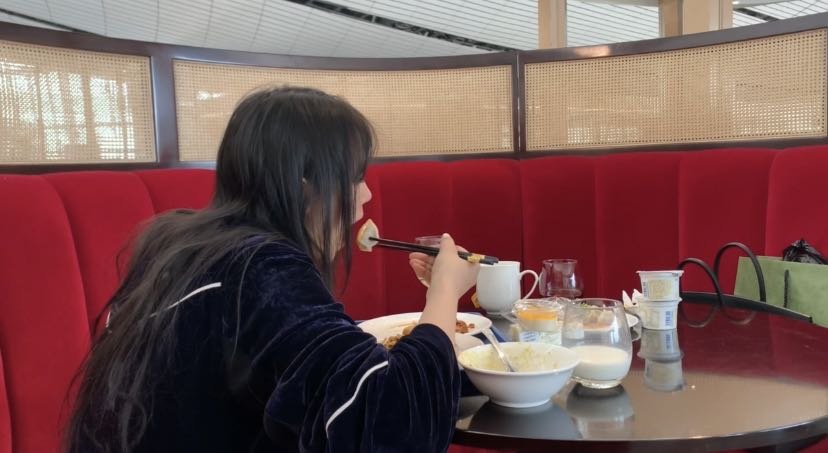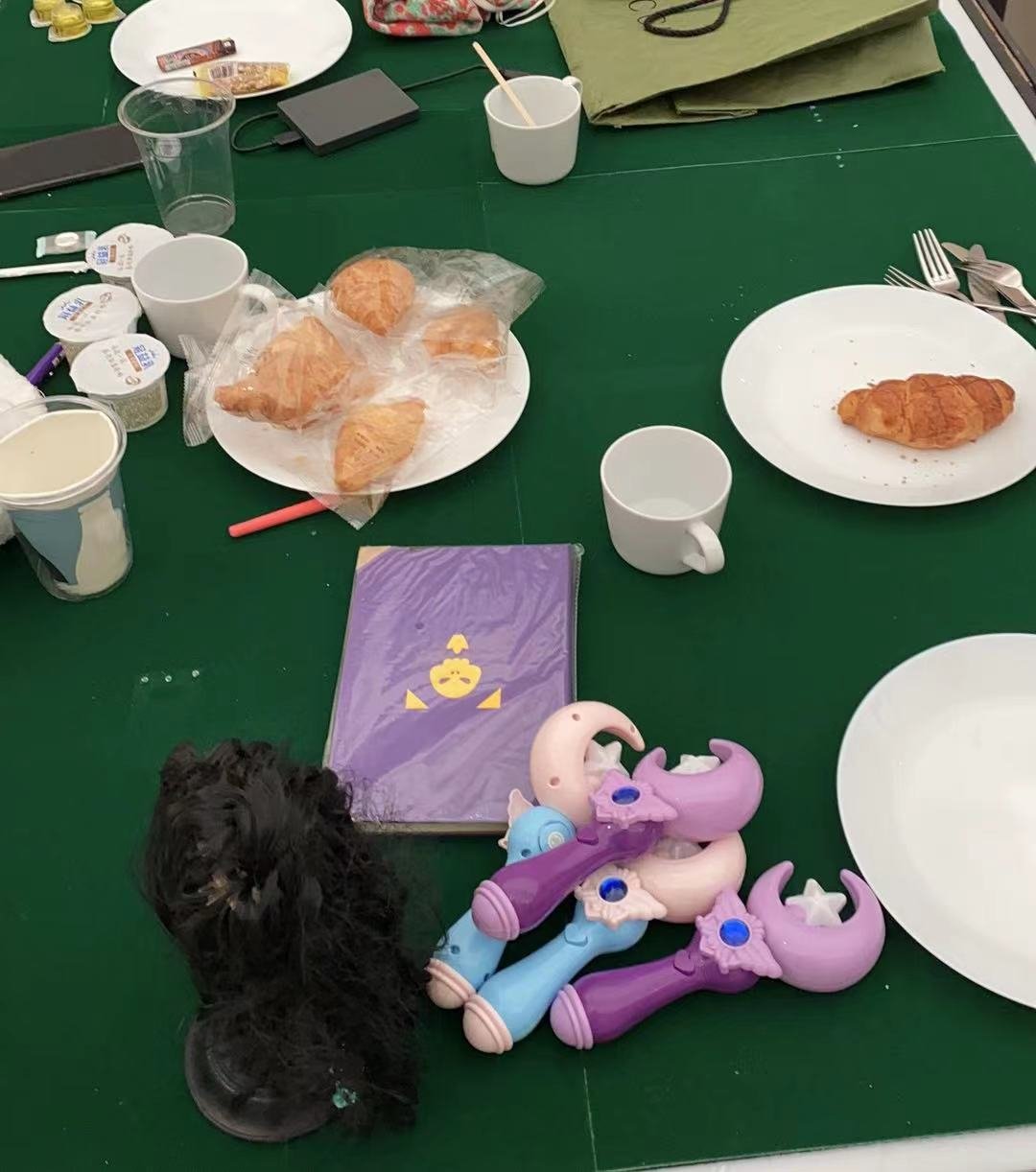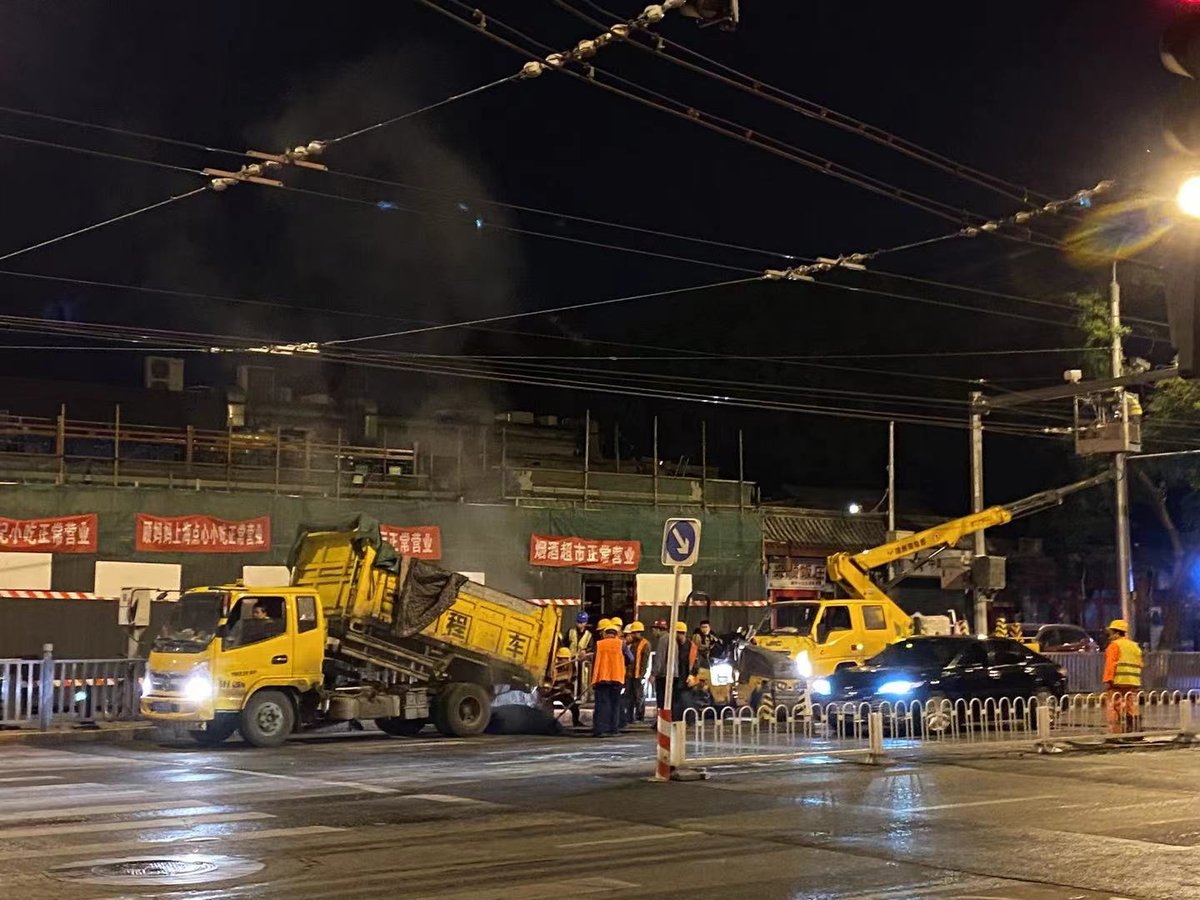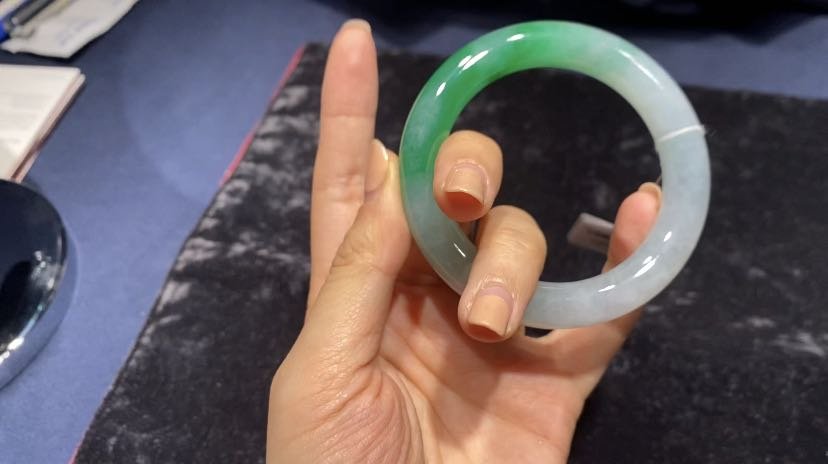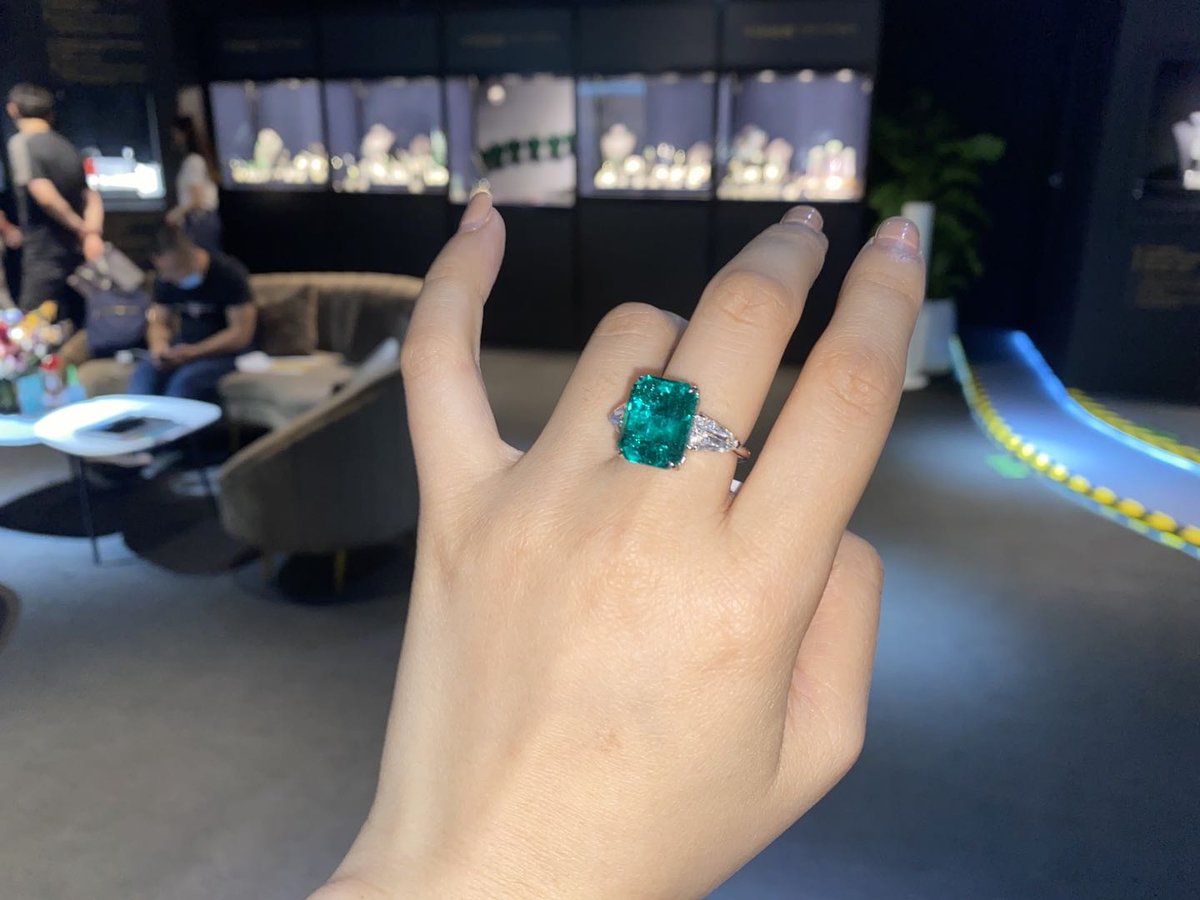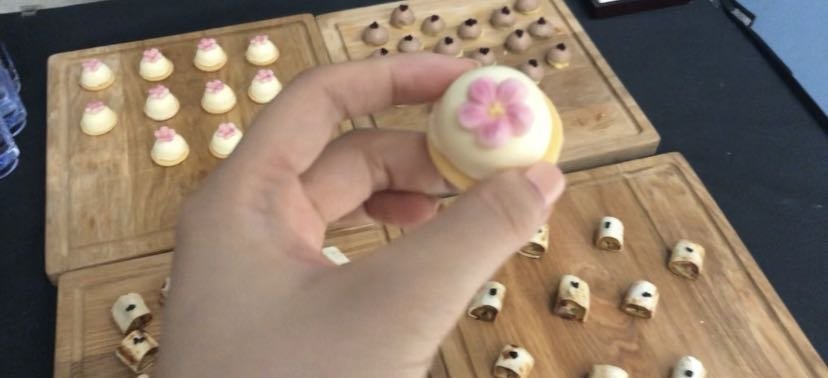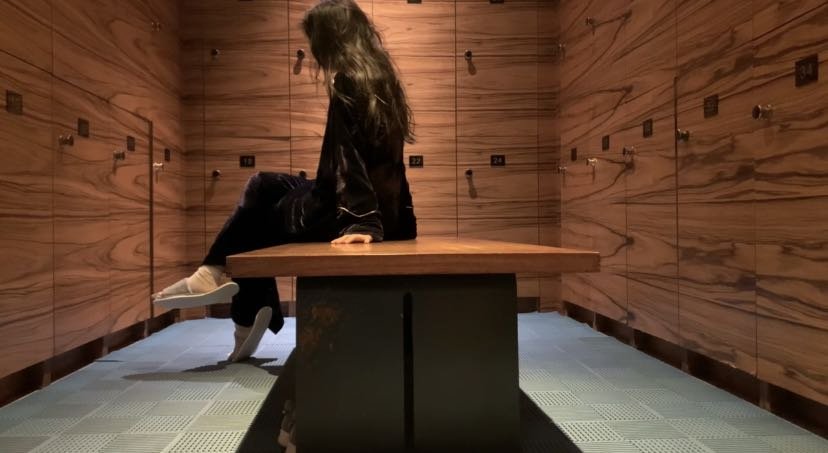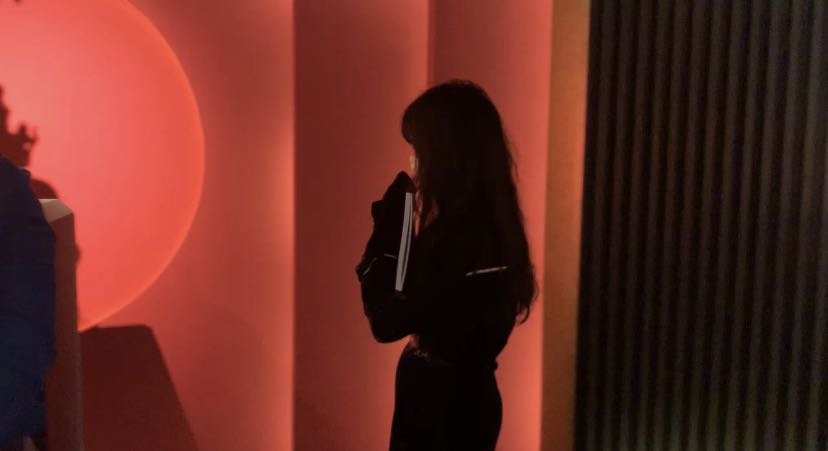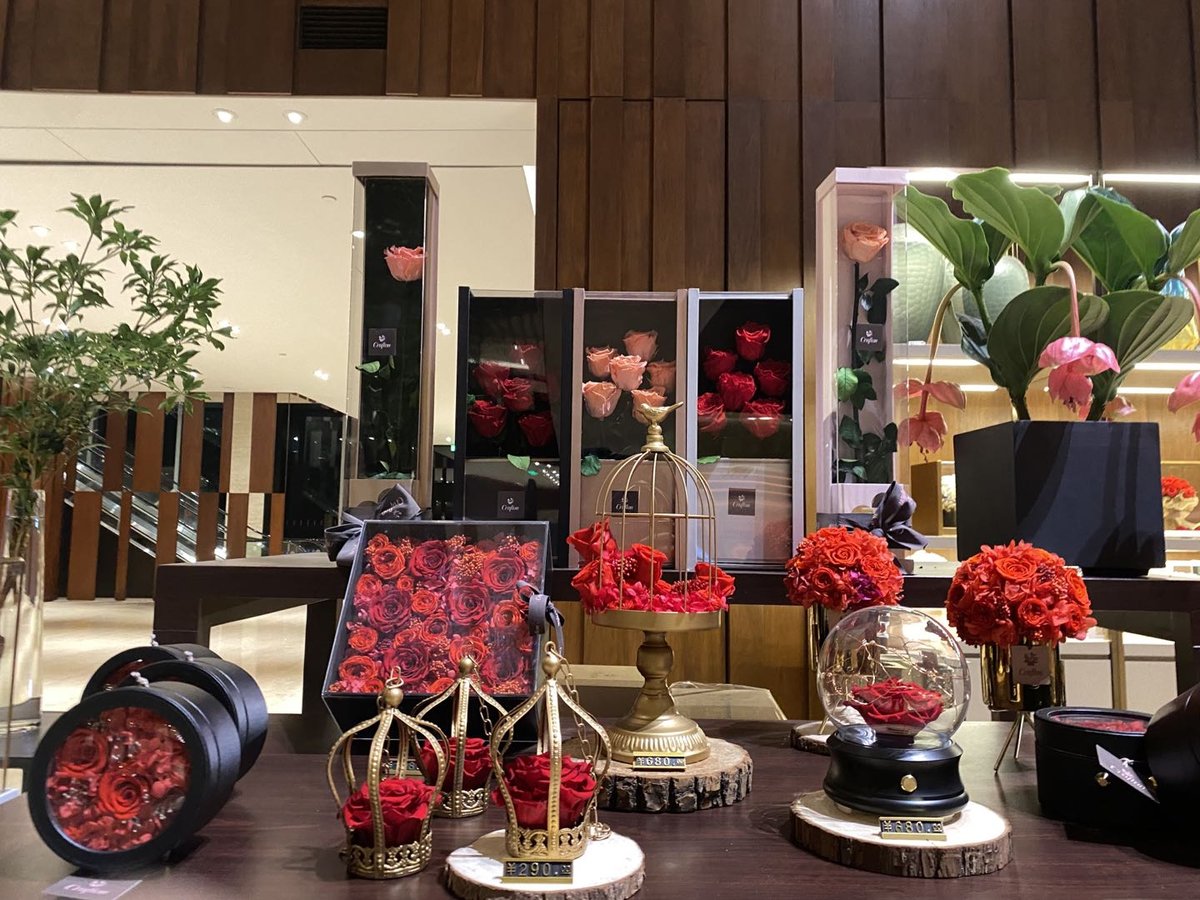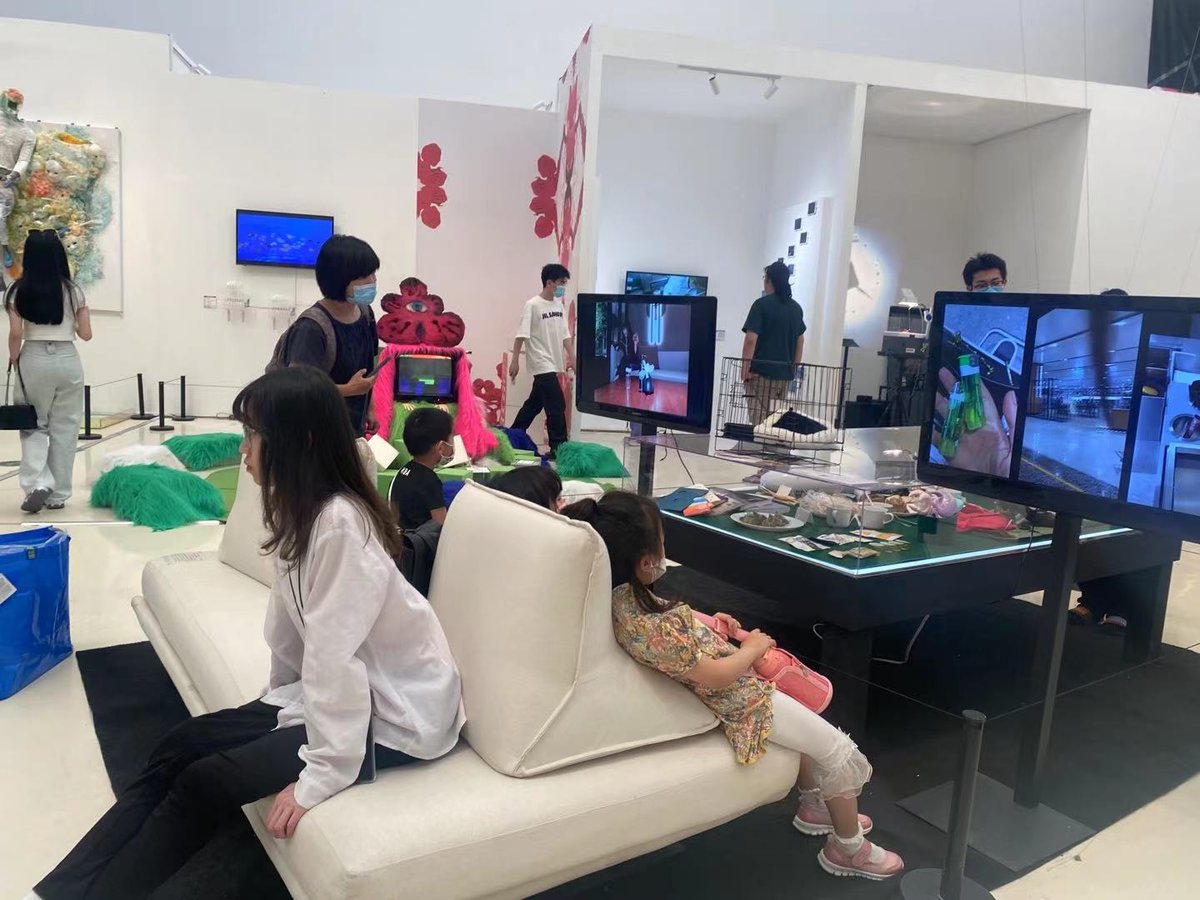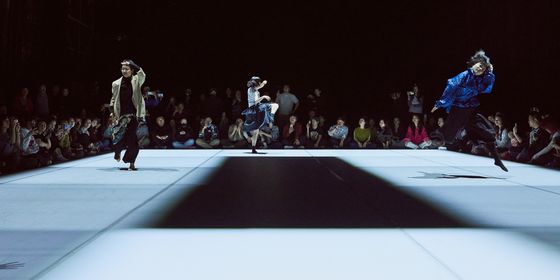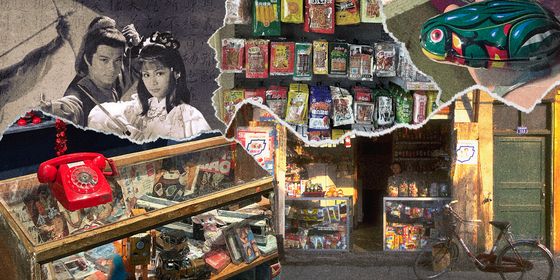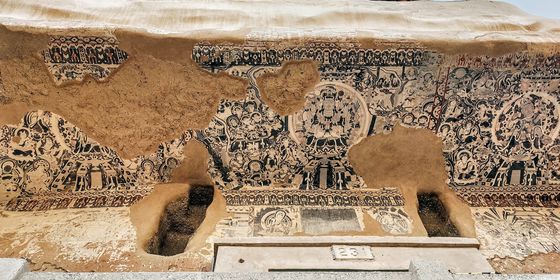Pretending to be a socialite to get by on a zero-yuan budget in China’s capital
I’m Zou Yaqi. From midnight on May 1 until midnight on May 21, I set myself a challenge to survive in Beijing for 21 days without money.
During those 21 days, I received an estimated 10,000 yuan’s worth in products and services as giveaways. I basically presented myself as a young, beautiful socialite. Occasionally, I would play the role of a pregnant woman; in order to sleep in hotel lobbies, I would play the part of a wife trying to catch her husband cheating. At auctions, I played the part of a collector, and at expos, I was a cosplayer. This was my graduation thesis at the Central Academy of Fine Arts.
-1-
A ticket to the game
It all started with a documentary class in my second year of college. The instructor had us explore a societal issue. At the time, as an art student, everyone was saying that I would have a hard time finding work after I graduated, so I wondered if I could find a way to eat without spending money, or have a place to live without working.
I spent three days filming a mockumentary, pretending that I survived for seven days in Beijing without spending any money. Afterward, I felt that making a mockumentary was inspiring; based on my own experiences, I figured I could actually survive in Beijing without spending money for 21 days.
For example, one year at the China World Trade Center, my mom gave me the task of buying a watch for my dad. It was for his birthday, so she gave me a pretty sizable budget, and I went to a high-end watch store. Because it was Christmas Day, almost all the stores had hired tall and handsome male models.
As soon as I entered, the models would ply me with Christmas cakes and candies. Then they’d pour me some milk tea. If I was going in to purchase luxury goods, I wouldn’t lack money to buy sweets and milk tea—those were free perks.
If I was homeless, would I be able to walk into that store, score some free milk tea and candy, and then leave? Because that time, I didn’t buy anything. That experience got me thinking: If I could play the part of a very wealthy person, could I live off these freebies? I decided to make my thesis a performance art project, putting that idea into practice.
Read more:
- Selling My Soul for Views: Breaking in as a Female Livestreamer
- One Woman’s Solo Road Trip Inspires a Generation
- Mixing Equality: Why is it So Hard for Women to be Bartenders in China?
I bought a fake Hermès bag that could hold a lot stuff. It could help me create my socialite persona, as well as carry all my things. My outfit was velvet, with an athleisure feel. I wore a mink coat over it, which kept me warm and made me look rich.
I prepared a makeup bag and some makeup remover to make sure I could be impeccably styled each day. I would give myself bright red lips to give a sense of hauteur, and sometimes I’d wear sunglasses as well.
I spent 18 yuan on a fake diamond ring, and prepared two necklaces to wear in turn. One was a counterfeit Vivienne Westwood necklace, and the other was a fake pearl necklace. The pearls were incredibly shiny, like the reflectors on a sanitation worker’s vest.
To me, this 21-day experiment was like a game. Even though all my equipment was ready, I still needed an admission ticket if I wanted to make use of it.
So I made a deal with the owner of a maid café: I would help out at an anime expo for three days, and he would buy me a plane ticket for 190 yuan and reimburse me for taxi fares to and from the airport. This is how I got into the airport lounge.
-2-
Level 1: The first-class lounge
Generally speaking, as an actual first-class passenger, they give you a card like a boarding reminder that you can use to get into the first-class lounge. I just printed one of these passes beforehand.
Because I had scoped out this lounge, I’d looked at all the photos they’d posted online, but when I went in it was a bit different. It was quite large inside, able to accommodate 50 to 100 people.
Their furniture was ring-shaped, with a 1.6 meter screen wrapping around each couch, with a Southeast Asian flair. The screens were woven rattan and the upholstery was red velvet. The opening to each seating area was very small, giving a sense of seclusion. I really liked this, because I was going to covertly stay there for a long while. The couches were large, and I slept well on them.
There was lots of food in the lounge. There were three different buffets for breakfast, at midday, and in the afternoon. I gorged myself like a wild animal, like I was trying to eat myself to death. There were also some tasty little sandwiches, breads, and yogurts. I thought I’d better take some of those to-go and save them for later.
There was a Gucci shop downstairs from the lounge, so I went down and asked the sales clerk, “I’ve spilled my things all over the floor, could you give me a bag? My plane’s about to take off, but I’ll have to come back and shop another time.” Then the clerk gave me a brand-new shopping bag.
Only later did I find out that those bags sold for 20 yuan each on Taobao. If you didn’t buy something expensive in the store, they normally wouldn’t give you those bags.
After that, I returned to the lounge without issue. Maybe because I had this bag, everyone thought I was the real deal. She was just shopping downstairs, she bought something from Gucci. I filled the bag with snacks from the lounge.
On the fourth day, a lounge attendant even actively invited me in. I was carrying my bag, on my way back from asking one of the shops for a sheet of A4 paper, when I bumped into the attendant: “The lounge is this way, you can follow me.” Then she brought me right in.
In reality, I didn’t feel like much of a socialite in the first-class lounge. From appearances alone, I couldn’t tell the first-class passengers apart from other passengers. If you take the women waiting on the hard benches outside and add an LV logo to their hats, they’d be just like the women in the lounge. Disparities in wealth didn’t lead to differences in taste. If we’re talking conversational style and personal qualities, there was even less of a difference there.After living in the airport for four or five days, I returned to the Wangjing neighborhood in the northeast part of Beijing. I had left my mink and my headphones in the maid café owner’s car, so I had to get those first. It would have been too cold otherwise.
-3-
Level 2: Wangjing’s Haidilao restaurants
Even though I had an easy time sneaking into the airport lounge, nothing there left a particular impression on me. The people there were all very busy: busy caring for children, busy on conference calls, busy working overtime. But in Wangjing, a familiar neighborhood for me, I met the warmest characters in the whole game: waiters at Haidilao hot pot restaurants.
I went to pretty much every Haidilao in Wangjing. Each time, my story was “I’m waiting for a friend,” when in fact that friend was never going to arrive.
The Haidilao staff took pity on me. At first they would bring me some water and bags of crispy rice snacks while I wanted at the restaurant, and I then would take all those crisps with me. Later they would give me toy fairy wands as consolation—I ended up collecting five or six of these. I even slept in their waiting area. They would say, “It’s okay, come inside and sleep. It's cold outside.”
As I continued with the performance, my skin got thicker and thicker. By the end I didn’t even feel like myself anymore. When I woke up in Haidilao, I’d wonder how the next table could still be eating. There was this feeling of, how did I end up in this place?
By the second half of the evening, they might’ve felt even more sorry for me. They’d say, “Come have some soup.” Some of them would give me white fungus and lotus seed soup; some would give me tangyuan. There were also tomatoes from the condiments table. I’d ask them for some sugar packets and dip the tomatoes in sugar. When I left, they’d say, “Take care, we look forward to your next visit.”
-4-
Level 3: From Wangjing to downtown
In reality, that period in Wangjing wasn’t much of a challenge, and nor did I get to use my “fake socialite” skills. I decided to leave Wangjing and head downtown. But the 20 kilometers between them posed a real challenge.
Most of the time I walked, because getting rides wasn’t easy. It was hard for me to get a conversation going with strangers, and everyone was absorbed in their own affairs. I also thought about ducking security on the subway, but this wasn’t so easy either, especially if you were alone.
So walking was more or less my only option. I started with a pair of new shoes. By halfway through, the heels were worn almost all the way down, gradually going from five centimeters to three centimeters to two. My feet were covered in calluses.
My walk from Wangjing to downtown wore me out, so I wanted to stop walking. I wanted to download a hookup app so I could trick someone into bringing me to a hotel.
I matched with five or six people, but none of them dared to give me a ride to a hotel. They couldn’t believe that a girl with half-decent looks would agree to go to a hotel so quickly, and thought that I was scamming them. So that plan failed. Plus, I realized this was in fact kind of dangerous, so I deleted the app.
It took me two days of walking in fits and starts to get downtown. For someone as out of shape as me, the exhaustion from walking and lack of sleep put me into a kind of torpor. A persistent low-grade fever even made me suspect I’d come down with Covid-19. But in the end, I got past this level.
-5-
Level 4: Infiltrating pre-auction events
I was still wearing that same outfit. By then, it was quite dirty, and a lump of butter had melted in my pants pocket. Maybe it wasn’t so obvious after I washed my hair: my face was all shiny and beautiful, but my body was sticky. I could even rub up bits of dirt.
Entering the auction preview, I was wearing my fake necklace and fake ring, with my fake Hermès bag slung over my shoulder. I put a few auction catalogs in my bag, like I was actually looking to buy.
There was a lot of jewelry at the preview, and they had staff posted at every counter. If you walk over and express interest, they’ll tell you about the jewelry and invite you to try it on. I did try on a few items.
Later an emerald-green bracelet caught my eye. The employee told me I could try it on, but I quickly told her, “There’s no need, this one’s out of my budget.” My actual budget wasn’t even 100 yuan, while that bracelet was around 10 million yuan.
In the end, I did end up trying on some items with her assistance—even some emerald rings. So I was wearing a 600,000 yuan ring on one hand, and an 18 yuan one on the other, and she didn’t seem to think there was anything wrong with that.
I felt a twinge of guilt at the time, because I knew I wasn’t going to buy anything. But I figured she didn’t care whether you were going to purchase anything, just whether you were looking.
I also didn’t feel out of place there, because by that time I was coming up on 21 days, and was fully absorbed in my role. My acting skills are decent, so I didn’t feel particularly awkward or on edge
The auction had an evening event with some refreshments—chocolate, foie gras, very fancy snacks. I ate all of the white chocolate snacks in one go, most of the plate. The staff found it endearing. They said, “It’s alright, if you finish them we can ask the kitchen to send some more.”
I also snuck into the gym of a nearby hotel, which needed you to swipe a card. I was following a man who looked like an instructor at my school. Maybe they thought we were together and didn’t ask any questions.
-6-
Level 5: Free breakfast and showers at a five-star hotel
As my journey through the survival game got smoother, I got more cocky. In the last level—a five-star hotel—someone finally saw through my disguise.
I had sussed out which floors had the gym, the parking garage, and the swimming pool. There was a locker room next to the swimming pool with a free sauna. I took two very pleasant showers there.
You had to sign in to use the showers. I would sign as characters from The Romance of Three Kingdoms—Liu Bei, and so on. For the room number I would put something like 811, 522, a common room number. Until the third day, when I signed “811 Rin Tohsaka.”
Rin Tohsaka is my favorite animated character. They might’ve thought there wouldn’t actually be someone with this name and found me out after looking me up. I immediately said, “I didn’t renew my room, but I’d like to wash my face and do my makeup before a date. Is that okay?”
They said that was fine, because I really was totally bare-faced at the time. There was nobody in the bathing area, so they gave me the No.1 card and I was able to have the whole facility to myself.
The hotel’s breakfast started at 6 a.m. My original plan was to go in and nap until 10 a.m. Then I would eat my fill, take food with me, the whole nine yards. There was a table of wealthy Beijingers across from me, who were stunned—they were gaping at me the whole time.
Actually, I could’ve done it without anyone seeing, but I was being a bit bad. I wanted to mess with the fat cats, let them think that this impeccably-dressed beauty was stealing things. At the time I thought I had a high chance of being caught, but it didn’t happen.
I even made preparations in the event that I got taken in by the police. If a police officer caught me, I would apologize, accept the warning, and say, “It’s true, I was in the wrong.” Then maybe my instructor would bail me out. I even thought about how I’d explain it to my mom.
I had prepared other scripts as well. For example, I was worried that someone might come up at any moment and ask, “What are you doing here? Why don’t you ever go back to your room, or ever go home?”
If they came and asked, I would say, “I’m trying to catch my husband cheating. I’m already doing you a favor by waiting down here—that’s better than me going up there to make a scene, isn’t it?”
I was deep in my act, and gradually stopped feeling like myself. I started treating everyone as NPCs in a game. Like a little kid playing make-believe: “Now I’m the empress and you’re my servant girl.” And when the game is over I’d say, “I’m sorry for being mean to you just then.”
-7-
Bonus
I also met this young security guard in the hotel. He wasn’t tall, just over 1.6 meters, and looked like an honest guy. He wore his hair combed back, that greasy kind of look, but he was actually quite hard-working in a way.
At the time he was trying to hit on me. He probably thought I was a rich woman who’d come to look at an exhibition alone. He offered to take pictures for me, and then went to get me some water. I told him I didn’t need any water, so he went and got me some coffee.
His colleagues tried to stop him, telling him not to bother the guests. But he told them to mind their own business.
In the end, he said asked if I wanted to add him on WeChat. He kept messaging me, asking, “Have you gotten home yet? What are you up to? Will you come see the exhibition again? What pieces are you taking photos of?” That kind of thing. But I didn’t respond. I felt a bit guilty. I didn’t know how to deal with it, and I also didn’t want to disappoint him.
Finally, I got a ride back to Wangjing with a collector I met at the auction. Because the 21st was my last day of college classes, it was also the final stage of my 21 days. I wanted to return to my starting point, back to the school, so I could consider my gate-crashing experiment a success.
I didn’t meet any bad people in those 21 days. Rather, I was the worst person there. For example, I kept posting updates to my WeChat Moments, and people would be confused, not knowing what I was up to. Friends would ask, “Are you going through a rough patch. Do you need money?”
The whole time, I never explained what I was doing. This was also because I wanted to mess with everyone right up until the very end, when I told them, “This was my thesis, come see my show.”
-8-
Instant possession
When I was putting together the exhibition, I had to think of a title.
I recalled the hotel lobby I stayed in near the end of my project was very new. I thought it must have been at least a third of an acre, full of flowers that cost several thousand yuan a display—2,000 or 3,000 yuan; there were even ones that sold for 10,000 yuan.
There wasn’t a soul in the lobby, except two security guards and a housekeeper. They were like my handmaid and my personal guards, like I was a princess and the lobby my castle. It was like I owned the lobby in that moment.
I thought back to past dynasties that stayed in power for only a few hundred years, always at risk of collapse. Nothing lasts forever.
I’ve held a bracelet worth 5 million yuan in my hand; I’d never seen such a beautiful bracelet before. It rested heavy on my wrist, and nobody was going to take it from me. It felt like it was mine.
But in reality, this object belongs to nature. Maybe a fortunate collector put in a winning bid on it and owned it for a while longer. But from my perspective, we each possessed it for a short time. Nobody can own it forever.
I can turn momentary gratification into something eternal. So I called my piece “Instant Possession.”
-9-
The exhibition
As far as I’m concerned, the most important props in this game were the couches, because I pretty much always slept on couches. Bar couches, hotel lobby couches, airport lounge couches—I think even street benches could be considered a kind of couch.
As I moved from couch to couch, they became like little islands. They gave me a resting place, so I put a couch in my own display so visitors could rest too, to give something back to society.
In my exhibition, I put the bag I’d gotten from the luxury store, some expired croissants, snacks from Haidilao, and the auction catalogs. If I didn’t tell anyone, nobody would know that I’d done any of this, but these items were my evidence. I also played some video I’d filmed on a screen in my exhibit.
I also designed a “Special Mission” display and left a bunch of sticky notes next to it in hopes that people would write down their small wishes, which I could help realize one by one.
Someone wrote that they wanted to adopt a dog, so I found an animal rescue organization and forwarded their WeChat to that person. Someone else wrote that I should bring some Coke to IKEA, so I bought 20 bottles of Coke and gave them to the employees there.
-10-
If you have no doubters, you’re not making people think
After the exhibition opened, many people liked my piece, but there were also others who said, “Why did you have to use society’s resources to make your own artwork?”
I did feel guilty about this, including for all those people I had deceived. But I didn’t really harm anyone. Even with the nastier comments, I didn’t pay them any mind.
At first, there was even someone impersonating a lounge employee commenting on my social media: “You can’t do this, delete this now!” I thought it was funny, so I liked the comment. He must’ve been angry. Later, every time he posted a comment, I’d give it a like.
Many people said I was a real socialite. They even made a tongue-twister like an infinite nesting doll: “A real socialite playing a fake socialite playing a real socialite…” That meant I did a good job acting, so I was happy to hear them speak with such certainty. But in all truth, I’m a proletarian—I go to thrift stores to shop their 12-items-for-100-yuan deals, and put my outfits together at home.
There were other comments that said, “She’s mocking society in the first place, and you’re trying to mock her—you’re the ones being ridiculous!” I actually think every comment has value, and I saved them all. I won’t delete them because they’re also part of my piece.
After its reported and explained, the public will know that I’m making art. Then they’ll understand and think, “how cool, how great.” Some people come up and compliment me, but before all this I actually hoped people would be shocked—that they would think, how could she do this? That there’d be some element of alarm, fear, or incomprehension.
Because I was always a good kid, I actually wanted people to see the world through my eyes or see how I thought. I thought that by doing this I might stop being afraid, or stop caring that I didn’t have an income after graduation, or I could pursue something I thought was worthwhile.
Whether it’s for my own future or for the sake of society, I hope that I can become an influential person and make some change.
In ancient times, art and artists served the ruling class, and then gradually came to serve the public. But I feel that this hasn’t radiated through our whole society. I hope my work can radiate out to all of society. If some people doubt you, others are being inspired to think more deeply. Only then will more people notice.
I had actually registered a bunch of social media accounts under my name prior to the start of this performance piece. The original plan was to simultaneously post images and videos during those 21 days, but I didn’t end up having the energy to do it. But I’ve already filled a 256-gigabyte phone with source material. I hope that in the future I can post some of it, and it can be seen and discussed by more people.
___
This story is published as part of TWOC’s collaboration with Story FM, a renowned storytelling podcast in China. It has been translated from Chinese by TWOC and edited for clarity. The original can be listened to on Story FM’s channel on Himalaya and Apple Podcasts (in Chinese only).





